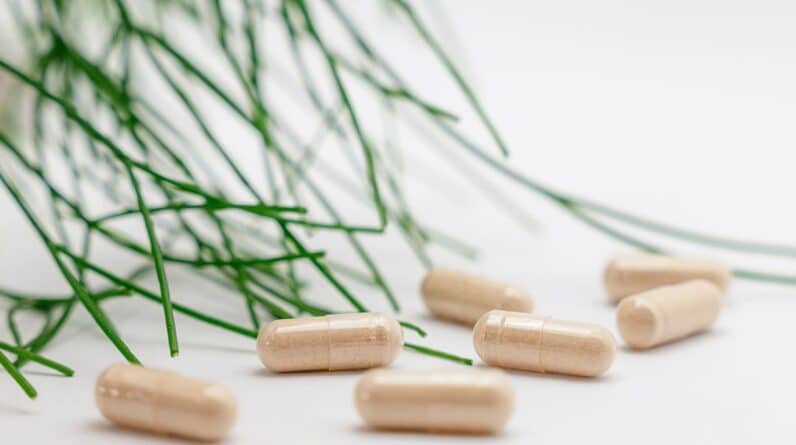Glutathione is a powerful antioxidant that plays a crucial role in maintaining your overall health. Composed of three amino acids—cysteine, glutamine, and glycine—this tripeptide is found in every cell of your body. It is often referred to as the body’s master antioxidant due to its ability to combat oxidative stress and support various cellular functions.
You may not realize it, but glutathione is essential for numerous biochemical processes, including DNA synthesis and repair, protein synthesis, and the regulation of cellular metabolism. In addition to its antioxidant properties, glutathione is vital for the proper functioning of your immune system. It helps to neutralize free radicals, which are unstable molecules that can cause cellular damage and contribute to various diseases.
By maintaining optimal levels of glutathione, you can support your body’s natural defenses and promote overall well-being. Understanding what glutathione is and how it functions can empower you to make informed choices about your health.
Key Takeaways
- Glutathione is a powerful antioxidant produced in the body that plays a crucial role in maintaining overall health and well-being.
- Glutathione helps protect cells from damage caused by free radicals and oxidative stress, and supports the immune system in fighting off infections and diseases.
- The antioxidant properties of glutathione make it essential for detoxification processes in the body, helping to remove harmful toxins and chemicals.
- As we age, our natural glutathione levels decline, leading to increased susceptibility to age-related diseases and conditions.
- Glutathione deficiency can lead to a range of health risks, including increased oxidative stress, weakened immune function, and higher risk of chronic diseases.
The Role of Glutathione in the Body
Maintaining Cellular Integrity
Glutathione is also involved in the synthesis and repair of DNA. This function is crucial for maintaining cellular integrity and preventing mutations that could lead to cancer. By ensuring adequate levels of glutathione, you can help mitigate these risks.
Supporting Metabolic Processes
Additionally, glutathione plays a role in the metabolism of fats and proteins, helping to convert nutrients into energy. By supporting these essential processes, glutathione contributes to overall vitality and health.
Antioxidant Properties of Glutathione

The antioxidant properties of glutathione are among its most significant benefits. As an antioxidant, it works by neutralizing free radicals—unstable molecules that can cause cellular damage and accelerate aging. When you experience oxidative stress due to factors like pollution, UV radiation, or unhealthy lifestyle choices, glutathione steps in to protect your cells from harm.
This protective action helps maintain cellular health and function, allowing you to feel more energetic and resilient. In addition to neutralizing free radicals, glutathione also regenerates other antioxidants in your body, such as vitamins C and E. This synergistic relationship enhances the overall antioxidant capacity of your body, providing a more robust defense against oxidative stress.
By increasing your intake of glutathione-rich foods or considering supplementation, you can bolster your body’s antioxidant defenses and promote long-term health.
Detoxification and Immune Function
Glutathione plays a pivotal role in detoxification processes within your body. It binds to harmful substances, such as heavy metals and toxins, facilitating their removal from your system. This detoxification process is essential for maintaining optimal liver function and overall health.
When your liver is functioning well, it can effectively filter out toxins and waste products from your bloodstream, allowing you to feel more energized and less fatigued. In addition to its detoxification capabilities, glutathione is crucial for a well-functioning immune system. It helps regulate immune responses by modulating the activity of immune cells, such as lymphocytes and macrophages.
When your immune system is functioning optimally, you are better equipped to fend off infections and illnesses. By supporting both detoxification and immune function through adequate glutathione levels, you can enhance your body’s ability to maintain health and resilience against disease.
Glutathione and Aging
As you age, your body’s natural production of glutathione tends to decline. This decrease can contribute to the aging process and increase the risk of age-related diseases. Lower levels of glutathione are associated with a decline in cellular function and an increase in oxidative stress, which can lead to inflammation and chronic health issues.
Understanding the connection between glutathione and aging can motivate you to take proactive steps to maintain healthy levels throughout your life. Research suggests that boosting glutathione levels may help slow down some aspects of aging. By enhancing cellular function and reducing oxidative stress, you may be able to improve skin elasticity, cognitive function, and overall vitality as you age.
Incorporating glutathione-rich foods into your diet or considering supplementation could be beneficial strategies for promoting healthy aging and maintaining a youthful appearance.
Glutathione Deficiency and Health Risks

Symptoms of Glutathione Deficiency
Recognizing the symptoms of glutathione deficiency is crucial in taking proactive measures to prevent more severe health issues. Common symptoms include fatigue, muscle weakness, as well as a compromised immune response.
Causes of Glutathione Deficiency
Several factors can contribute to glutathione deficiency, including a poor diet, chronic stress, environmental toxins, and certain medical conditions. If you suspect that you may be deficient in this vital antioxidant, it’s essential to consult with a healthcare professional who can guide you on appropriate dietary changes or supplementation options.
Addressing Glutathione Deficiency
By addressing glutathione deficiency early on, you can significantly improve your overall health and reduce the risk of developing chronic diseases.
Ways to Increase Glutathione Levels
There are several effective strategies you can employ to increase your body’s levels of glutathione naturally. One of the most straightforward methods is through dietary choices. Foods rich in sulfur-containing amino acids—such as garlic, onions, cruciferous vegetables (like broccoli and Brussels sprouts), and legumes—can help boost glutathione production in your body.
Additionally, incorporating foods high in vitamin C (such as citrus fruits) can enhance the regeneration of glutathione. Another way to increase glutathione levels is through regular exercise. Physical activity has been shown to elevate glutathione levels by promoting better circulation and enhancing cellular function.
Furthermore, managing stress through mindfulness practices like meditation or yoga can also support healthy glutathione levels by reducing oxidative stress on your body. By adopting these lifestyle changes, you can effectively enhance your body’s natural production of this vital antioxidant.
Potential Health Benefits of Glutathione Supplementation
Glutathione supplementation has gained popularity in recent years due to its potential health benefits. Many individuals turn to supplements in hopes of boosting their energy levels, enhancing detoxification processes, or improving skin health. Some studies suggest that oral or intravenous glutathione supplementation may help increase overall levels in the body, leading to improved antioxidant capacity and reduced oxidative stress.
However, it’s essential to approach supplementation with caution. While some people may experience positive effects from taking glutathione supplements, others may not see significant benefits due to factors like absorption rates or individual health conditions. Consulting with a healthcare professional before starting any supplementation regimen is crucial for ensuring safety and effectiveness tailored to your specific needs.
By making informed decisions about glutathione supplementation, you can harness its potential benefits while prioritizing your overall health and well-being.
If you are interested in learning more about the importance of nutrients for overall health, you may want to check out this article on what nutrients do I need daily. Understanding the incredible health benefits of glutathione is just one piece of the puzzle when it comes to maintaining optimal health. Nutrients like vitamin C and calcium also play crucial roles in supporting our bodies and keeping us healthy. So, be sure to educate yourself on the essential nutrients your body needs daily to function at its best.
FAQs
What is glutathione?
Glutathione is a powerful antioxidant that is naturally produced in the body. It is made up of three amino acids: cysteine, glutamine, and glycine.
What are the health benefits of glutathione?
Glutathione plays a crucial role in protecting cells from oxidative stress and maintaining the immune system. It also helps in detoxifying the body and supporting liver function. Additionally, glutathione is known for its anti-aging properties and its ability to improve skin health.
How can I increase my glutathione levels?
There are several ways to boost glutathione levels in the body, including consuming foods rich in sulfur (such as garlic, onions, and cruciferous vegetables), taking glutathione supplements, and using skincare products containing glutathione.
Are there any risks associated with glutathione supplementation?
While glutathione supplementation is generally considered safe, it is important to consult with a healthcare professional before starting any new supplement regimen, especially for individuals with existing medical conditions or those who are pregnant or breastfeeding.
Can glutathione help with certain medical conditions?
Research suggests that glutathione may have potential benefits for conditions such as Parkinson’s disease, liver disease, and respiratory conditions. However, more studies are needed to fully understand the extent of its effectiveness for these conditions.






